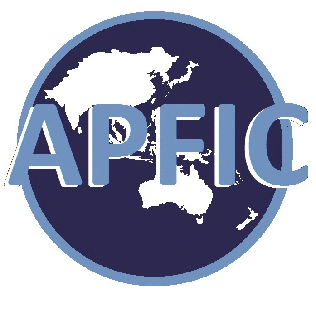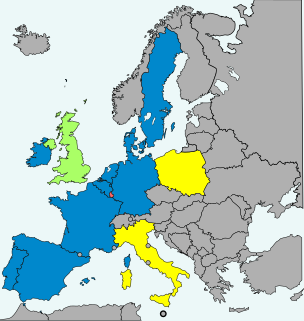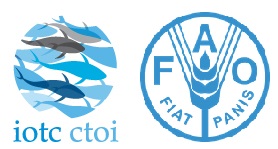 W
WThe Asia-Pacific Fishery Commission (APFIC), originally called the Indo-Pacific Fisheries Council (IPFC) is a Food and Agriculture Organization (FAO) Article XIV Regional Fisheries Body which covers fisheries, aquaculture and related aquatic resource issues in the Asia-Pacific region. APFIC functions as a Regional Consultative Forum raising awareness amongst member countries, fisheries organizations and fisheries professionals in the Asia-Pacific region.
 W
WThe Western and Central Pacific Fisheries Commission (WCPFC) is a treaty-based organisation established to conserve and manage tuna and other highly migratory fish stocks across the western and central areas of the Pacific Ocean. Its full name is Commission for the Conservation and Management of Highly Migratory Fish Stocks in the Western and Central Pacific Ocean. It commenced operations in late 2005, and its secretariat is based in Pohnpei, in the northern Pacific state of the Federated States of Micronesia.
 W
WThe Convention on the Conservation of Antarctic Marine Living Resources, also known as the Commission for the Conservation of Antarctic Marine Living Resources, and CCAMLR, is part of the Antarctic Treaty System.
 W
WThe Fisheries Convention or the London Fisheries Convention is an international agreement signed in London in relation to fishing rights across the coastal waters of Western Europe, in particular the fishing rights in the North Sea, in the Skagerrak, in the Kattegat and on the European Atlantic coast. It gives right of full access to the fishing grounds between 6 and 12 nautical miles of the national coastline to the fishing industry of those contracting parties that had already been fishing there in the period 1953–1962.
 W
WThe North East Atlantic Fisheries Commission (NEAFC) is a regional fisheries management organization that maintains controls over fishing and fishing-related acts in the North East Atlantic Ocean. NEAFC states that its objective is "to ensure the long-term conservation and optimum utilization of the fishery resources in its Convention Area, providing sustainable economic, environmental and social benefits." The area covered by the NEAFC Convention stretches from the southern tip of Greenland, east to the Barents Sea, and south to Portugal.
 W
WThe Indian Ocean Tuna Commission is an intergovernmental organization that co-ordinates the regulation and management of tuna in the Indian Ocean. Conceived in 1993, it entered into existence in 1996.
 W
WThe Inter-American Tropical Tuna Commission is an international commission responsible for the conservation and management of tuna and other marine resources in the eastern Pacific Ocean.
 W
WThe International Pacific Halibut Commission (IPHC) is an International Fisheries Organization, having Canada and the United States as its members, responsible for the management of stocks of Pacific halibut or Hippoglossus stenolepis within the Pacific waters of its member states. It was founded in 1923 by an international treaty. The original treaty has been revised three times. The 1979 amendment clarified the role of the IPHC in the management of the fishery through the North Pacific Halibut Act of 1982.
 W
WThe Pacific Islands Forum Fisheries Agency (FFA) is an intergovernmental agency established in 1979 to facilitate regional co-operation and co-ordination on fisheries policies between its member states in order to achieve conservation and optimum utilisation of living marine resources, in particular highly migratory fish stocks, for the benefit of the peoples of the region, in particular the developing countries. The office campus is located in Honiara, Solomon Islands
 W
WSouthern Indian Ocean Fisheries Agreement (SIOFA) is an international fisheries agreement between several nations signed in Rome on 7 July 2006 and entered into force on 21 June 2012. The purpose of the agreement is to ensure and promote the long-term conservation and sustainable use of the fishery resources in the area through cooperation among the member states.